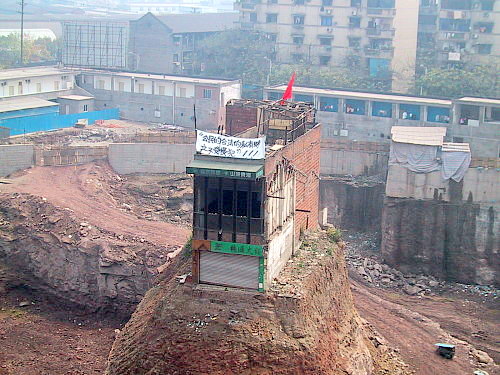Magnum: Thanks, interesting. Actually, I thought the Chinese government would just forcefully confiscate the land and make a small reimbursement. It seems that the U.S. government is tougher than the Chinese in this area.
In China, land is (usually) owned either by the state or the village as a group ( a collective). What is sold is the right to use the land. That system is not unique to China, in Australia, that's the system in use in the capital city, Canberra, but not elsewhere
The village collective system is the most interesting to me (as an interested observer of the social changes in China). In south China, in the very large city of Guangzhou (once called Canton), the city has expanded over village owned agricultural land, The village collective still owns the land, but the system has enabled these formerly (relatively) 'poor' peasants to become very, very wealthy.
In the west this system is often called 'leasehold.' In the Chinese version, the length of the lease is subject to the use to which the land is to be put.
| Purpose | Years of Grant |
|---|
| Land for residential purposes | 70 years |
| Land for industrial purposes | 50 years |
| Land for purposes of educational, scientific and technological, cultural, health care or sports | 50 years |
| Land for commercial, tourism or recreational purposes | 40 years |
| Land for combined usage or other purposes | 50 years
|
So if you buy a dwelling from a previous owner, you may actually 'own' the use of the property for less than the original 70 years, which of course must affect the price.
The above is a rather simplistic overview. The system is still evolving, as all tenure systems do, and difficult situations arise sometimes, as in the following instance. (Obviously the situation is more complicated than the FT video allows.)
I feel some sympathy for the situation of this woman and her family.
The family bought the house (in Beijing) during the last years of the Imperial Qing dynasty (which ended in 1912).
Then came the official Republic of China, whose authority did not extend far from Beijing- most of the country was ruled by the so-called war-lords (local dictators). Then, from 1937 to 1945, there was a Japanese ruled authority. In 1945 the Republic of China ruled during the civil war, until 1949, when the Communist dominated Popular Front won control of North China and Beijing.


